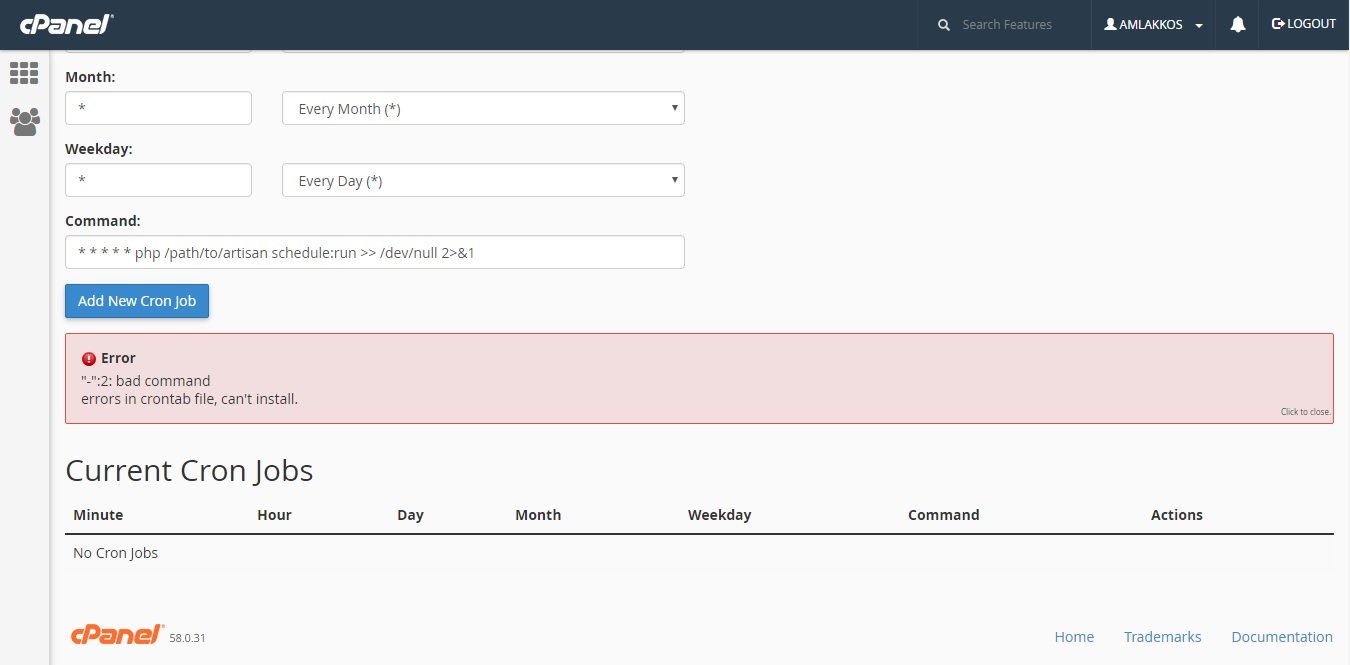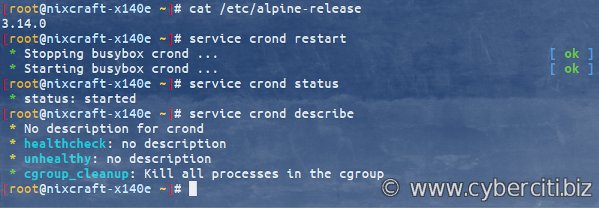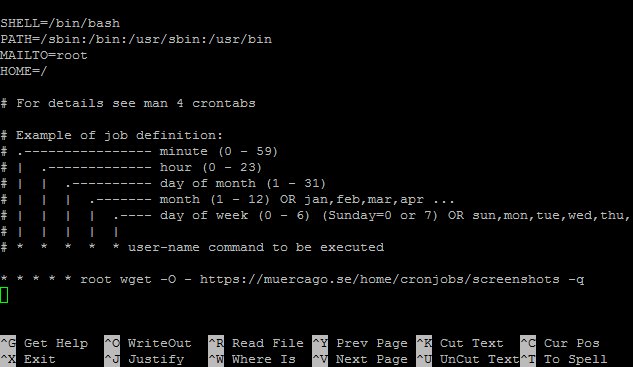Are you looking for a way to automate tasks in your Laravel application? Look no further! Laravel Cron Tab provides the solution you need. With Laravel’s built-in cron tab functionality, you can easily schedule and automate repetitive tasks, making your development process more efficient. In this article, we will explore how to harness the power of Laravel Cron Tab and seamlessly integrate it into your application. So, let’s dive in and see how you can leverage this feature to enhance your Laravel development experience.
Laravel Cron Tab: Automating Tasks in Laravel
Automation plays a key role in streamlining workflows and improving efficiency in software development. When it comes to Laravel, one of the most popular PHP frameworks, the Laravel Cron Tab feature proves to be an invaluable tool for automating recurring tasks. With Laravel Cron Tab, developers can schedule regular tasks to run automatically, allowing them to focus on more critical aspects of their applications.
What is Laravel Cron Tab?
Laravel Cron Tab is a built-in feature of the Laravel framework that allows developers to schedule recurring tasks to be executed at specific intervals. These tasks can include anything from database cleanup and email notifications to fetching data from external APIs and generating reports. By automating these tasks, developers can save time and effort, ensuring that their applications continue to run smoothly without manual intervention.
Setting up Laravel Cron Tab
Setting up Laravel Cron Tab is a straightforward process that involves a few simple steps:
- Open your terminal and navigate to your Laravel project directory.
- Run the command
crontab -eto open the crontab file. - Add a new entry to the crontab file using the syntax
* * * * * php /path/to/artisan schedule:run >> /dev/null 2>&1. - Save and exit the crontab file.
Once the crontab is set up, Laravel will execute the scheduled tasks at the specified intervals. The schedule:run command is responsible for running the scheduled tasks defined in the App\Console\Kernel class.
Defining Scheduled Tasks
To define scheduled tasks in Laravel, you need to modify the schedule method in the App\Console\Kernel class. This method contains a fluent API that allows you to define the tasks and their schedules.
Here’s an example of how you can define a scheduled task:
use Illuminate\Console\Scheduling\Schedule;
protected function schedule(Schedule $schedule)
{
$schedule->command('inspire')->hourly();
}
In this example, the command('inspire') method is used to specify the task to be executed, while the hourly() method sets the task to run once every hour. Laravel provides a wide range of methods to define different scheduling options, such as daily, weekly, monthly, and even custom intervals.
Running Scheduled Tasks
Once you have defined your scheduled tasks, you need to make sure they are executed by Laravel. This can be done by setting up a cron job on your server that runs the schedule:run command at regular intervals.
To set up the cron job, you can use the following command:
* * * * * php /path/to/artisan schedule:run >> /dev/null 2>&1This command runs the schedule:run command every minute and redirects the output to /dev/null to discard it. By running this command, Laravel will check the defined schedules and execute any tasks that are due.
Handling Task Output
When running scheduled tasks, it’s essential to handle the output properly to monitor the task execution and handle any errors or notifications. Laravel provides several ways to handle task output:
- Logging: You can configure Laravel to log the output of scheduled tasks to a file for later review. This allows you to track the execution and debug any issues that may arise.
- Email Notifications: Laravel supports sending email notifications for scheduled task output. You can configure Laravel to send an email to a specific address whenever a task is executed, providing real-time updates on the task’s status.
- Slack Integration: If your team uses Slack for communication, you can integrate Laravel with Slack to receive notifications about scheduled task output directly in your Slack channels.
By utilizing these options, you can ensure that you stay informed about the execution status of your scheduled tasks and take appropriate actions when necessary.
Common Use Cases for Laravel Cron Tab
Laravel Cron Tab can be used in various scenarios to automate recurring tasks in your Laravel applications. Some common use cases include:
- Data Synchronization: You can set up scheduled tasks to fetch data from external APIs or other sources and synchronize it with your application’s database.
- Email Notifications: Sending automated email notifications at specific intervals, such as weekly reports or reminder emails, can be easily achieved with Laravel Cron Tab.
- Backup and Cleanup: Automating database backups and performing regular cleanup tasks, such as deleting expired records, can help maintain a clean and efficient application.
- Generating Reports: Laravel Cron Tab can be used to generate reports and export them in various formats, such as PDF or CSV, at predefined intervals.
- Social Media Integration: If your application interacts with social media platforms, you can automate tasks such as posting updates or fetching data from social media APIs using scheduled tasks.
Benefits of Using Laravel Cron Tab
Using Laravel Cron Tab offers several benefits for developers and their Laravel applications:
- Automation: Laravel Cron Tab allows developers to automate recurring tasks, reducing the need for manual intervention and saving time and effort.
- Improved Efficiency: By automating tasks, developers can focus on more critical aspects of their applications, enhancing overall productivity and efficiency.
- Reliability: Scheduled tasks executed by Laravel Cron Tab are reliable and consistent, eliminating the risk of human error and ensuring tasks are executed as intended.
- Scalability: As your application grows, the number of recurring tasks may increase. Laravel Cron Tab provides a scalable solution to manage and execute these tasks efficiently.
- Flexibility: Laravel Cron Tab offers a flexible scheduling system that allows you to define tasks at various intervals, accommodating a wide range of use cases.
Laravel Cron Tab is a powerful tool that enables developers to automate recurring tasks in their Laravel applications. By leveraging this feature, developers can streamline their workflows, improve efficiency, and ensure that important tasks are executed without manual intervention. Whether it’s data synchronization, email notifications, or generating reports, Laravel Cron Tab offers a flexible and reliable solution for all your automation needs in Laravel.
Laravel Task Scheduling: Run Artisan Command Hourly
Frequently Asked Questions
What is Laravel Cron Tab and how does it work?
Laravel Cron Tab is a built-in feature in the Laravel framework that allows you to schedule and automate tasks to run at specific intervals. It utilizes the cron daemon in Unix-like operating systems to execute predefined commands or scripts at predetermined times or intervals.
How can I set up a cron job in Laravel?
To set up a cron job in Laravel, you need to follow these steps:
- Create a new command using the artisan command-line interface.
- Define the command’s functionality within the handle method of the generated command class.
- Register the command in the app/Console/Kernel.php file.
- Specify the frequency at which the command should run using the Laravel scheduling syntax.
- Add an entry to your server’s cron table pointing to the artisan command.
Can I schedule a cron job to run at specific intervals using Laravel Cron Tab?
Yes, you can schedule cron jobs to run at specific intervals using Laravel Cron Tab. Laravel provides a Fluent API for defining the frequency of cron jobs. You can use methods like everyMinute, everyFiveMinutes, hourly, daily, weekly, monthly, and more to specify the desired interval.
How can I pass parameters to a cron job scheduled with Laravel Cron Tab?
To pass parameters to a cron job scheduled with Laravel Cron Tab, you can make use of the command’s arguments or options. Arguments allow you to pass values to the command as command-line arguments, while options enable you to pass values as key-value pairs. You can define arguments and options in the signature property of the command class and use them within the handle method.
Can I run multiple cron jobs concurrently with Laravel Cron Tab?
Yes, you can run multiple cron jobs concurrently with Laravel Cron Tab. Laravel’s cron scheduler allows you to define multiple commands and schedule them to run at different intervals. Each command will be executed independently, allowing you to automate and manage various tasks simultaneously.
Final Thoughts
The Laravel Cron Tab is an essential component for automating tasks in Laravel applications. It allows developers to schedule predefined tasks, such as sending emails or clearing caches, at specified intervals. By incorporating the Laravel Cron Tab, developers can easily manage and organize recurring tasks without manual intervention. This enhances the efficiency and reliability of the application. With the Laravel Cron Tab, developers can streamline their workflow and ensure that crucial processes are executed timely and accurately. Incorporating the Laravel Cron Tab is a powerful way to optimize your Laravel application while improving productivity.



